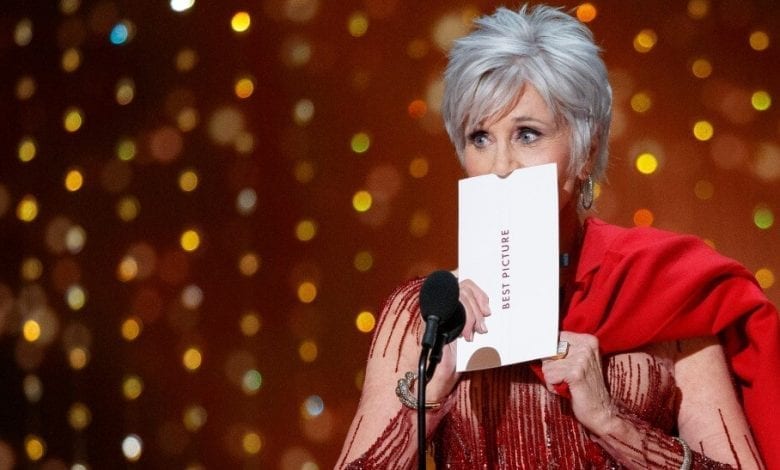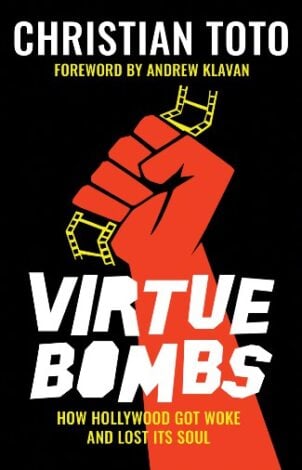The Silver Lining in Bari Weiss’ Shocking Woke Hollywood Expose
Hollywood alienates talent at its own peril, but will capitalism ride to the rescue?

Most of what I knew about how Hollywood really worked came from Robert Altman’s brilliant satire “The Player” and screenwriter William Goldman’s hilarious memoir, “Adventures in the Screen Trade.”
That is, until one afternoon in 1992 when I found myself on the Paramount lot pitching ideas to “Star Trek: The Next Generation.” How exactly that came to happen is a funny story.
A while before, I’d chanced upon an article in Cinefantastique magazine about how a guy named Ron Moore had mailed a spec script to the show, sold it, and then gotten hired on as a staff writer.

I figured hell, if he could do it, why couldn’t I?
So I cranked out a couple of scripts, mailed them in, then over the course of the next year completely forgot about it. Then came a phone call from the “TNG” script coordinator: No sale, but they liked my style and wondered if I might be interested in sending some more stuff their way.
Of course, an adventure out west sounded like a fun idea, so I accepted their invitation in person—which is how I ended up in my first (and, as it turned out, only) television series writer’s meeting. I pitched, they passed, and the whole thing was over in about fifteen minutes—not exactly the glory I’d envisioned, but it did teach me a valuable lesson.
Showbiz is serious biz, and they don’t have time to mess around. Better luck next time, kid.
Still, it seemed to me that talent made all the difference in the world, and I appreciated the chance to interact with people whose work I admired. Plus, the creativity in that room—it was something you could feel, a give and take process that wasn’t always pretty but had some pretty amazing outcomes.
Times have changed, though, and Hollywood along with it. Sure, it’s as crazy a place as it ever was, filled with egos, pettiness, scandals and larger-than-life personalities.
Still, an investigative report from Bari Weiss’s Substack shows how creativity has been subjugated to a fear that makes even political correctness seem quaint by comparison.
One showrunner, afraid to send his emails to us out of fear of them accidentally winding up on the wrong screen, agreed to show us correspondence with agents, writers, and studio chiefs that capture the new thinking at the highest levels of the Hollywood food chain…
“This one a dead end — they are going to limit search to women and bipoc candidates”
“How tied to hiring him are you? There are some internally that don’t like the idea of hiring a white guy. I wish I had a better way to frame it. Hate this shit.”
“Studio now telling us this job must go to a female / bipoc writer. Sorry — it sucks”
So it would seem that it’s not just your politics than can get you canceled in Hollywood. It can happen if you don’t check all the right boxes on the diversity list.
The article by Peter Savodnik and Peter Kiefer goes on to mention the Academy of Motion Picture Arts and Sciences’ enforcement mechanism for the new rules. Films hoping to snag a Best Picture nomination must meet or exceed several diversity quotas, from story themes to cast and crew members featuring under-represented groups.
Good thing Gwyneth has her GOOP business.
In Hollywood there is a “pervasive fear of running afoul of the new dogma. This is the case not just among the high command but at every level of production.” Probable effects: Bold & creative films will now be made outside US. Oscars will lose importance. https://t.co/ru95b3QKdl
— Timur Kuran (@timurkuran) January 12, 2022
These days, “Shakespeare In Love” would’ve walked away from the Oscars without the night’s most coveted award.
It makes one shudder to think of all the great Best Picture winners—and all the amazing talents behind them–that modern Hollywood would simply ignore because they don’t conform to these narrow standards.
- “The English Patient?” Dead on arrival
- “The Silence of the Lambs?” Um, that Buffalo Bill is problematic
- “Lawrence of Arabia?” A white colonizer, ‘nuff said
- “Gone With the Wind?” More like dust in the wind, amirite?
Sure, American culture would have been much the poorer without these movies—but like Stalin observed, you can’t make an omelet without cracking a few eggs. And pelting writers, directors and actors of pallor with a few rotten ones while we’re at it.
The sad part is how all of this bean counting is the very death of creativity, which results in bland, anodyne art that neither challenges its audience or entertains. That’s because true art is often transgressive, daring to cross lines and provoke reactions that, God forbid, make us feel and question—not just obey the edicts from our would-be progressive masters.
RELATED: How Brie Larson Can Truly Impact Diversity
None of which is to say that diversity in filmmaking is a bad thing. It’s not. The more voices we have out there relating their experience, the better—but that should be the means toward good storytelling, not an end in and of itself.
On the bright side, however, this enforced conformity does present a real opportunity. While Hollywood dominates film and television production, they are by no means a monopoly—and if creative people there are stifled by the new rules and unable to work, why not hire them away and make content elsewhere?
A place like Florida, with its beautiful locations and culture of freedom, is already poised to become a leader in entertainment.
In fact, companies such as Ben Shapiro’s Daily Wire are already making inroads, with its second film, “Shut In,” to be released soon. But other companies could be doing even more, especially with Hollywood’s talent pool just begging to be tapped.
Let’s give them a run for their money, shall we?
Marc D. Giller is the author of the novels HAMMERJACK and PRODIGAL
